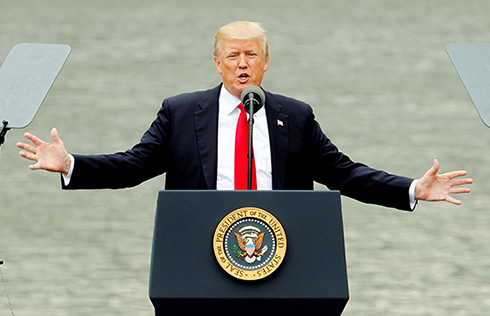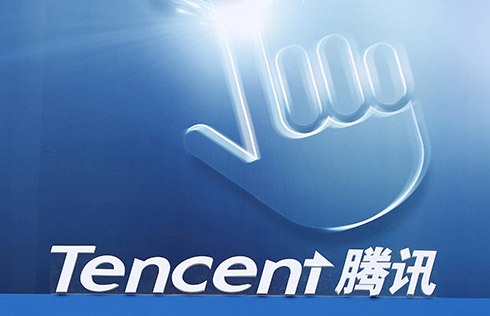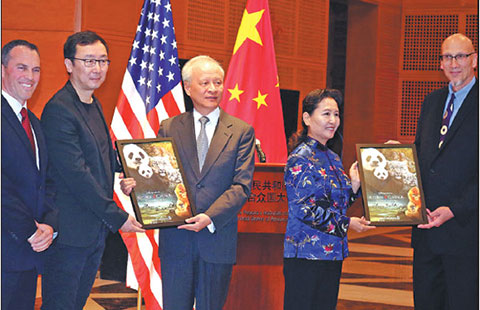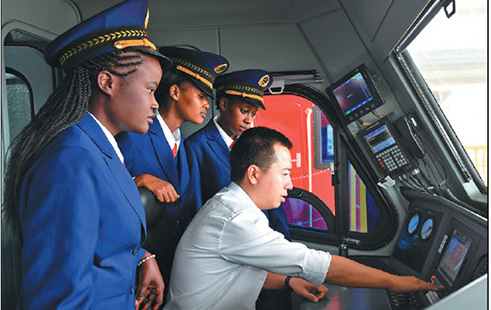Transport body swears by manifold benefits of initiative
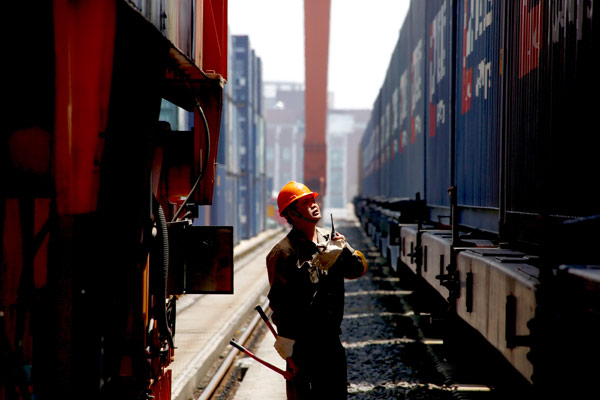 |
|
A worker manoeuvres a crane that unloads containers arrived on the First Sino-Euro Freight Train at the goods station in Yiwu, Zhejiang province. [Photo/Agencies] |
The Belt and Road Initiative serves as a "global ambition" whose benefits like economic stability and prosperity for communities would be far-reaching and felt across the world, said a Geneva-based international transport organization.
"While the initiative is the vision of the Chinese government and primarily concerns China and the economies relating to the Belt and Road Initiative, the ambitions are global," said Umberto de Pretto, secretary-general of the International Road Transport Union, in an email.
The IRU is a 70-year-old organization that promotes global road transportation network, standards and safety.
"The initiative encourages a more globalized, integrated approach to achieve an open, inclusive and balanced regional economy," de Pretto said.
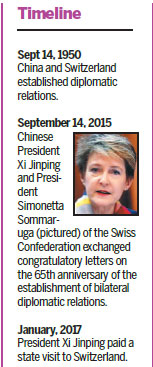
Ahead of the Belt and Road Initiative Forum for International Cooperation on Sunday and Monday, de Pretto said countries across the world are being reminded of the fact that prosperity and peace are achieved through enhanced trade relationships.
"It's a strong message that is compelling for both Chinese and international communities," said de Pretto.
He further said that the initiative has already won wide recognition in Europe since it was first proposed by President Xi Jinping more than three years ago. Many Europeans believe it will help connect new business zones and landlocked countries with major European and Chinese markets.
He said this conclusion was drawn after the IRU hosted a transport conference in the context of the Belt and Road Initiative in Brussels last November.
At the conference, he said the opportunities and challenges for Europe under the initiative were specifically examined.
During the conference, that brought together 300 of Europe's leading transport professionals, it was widely agreed that the initiative will have significant potential to increase trade, stimulate economic development and reduce transport times, he said.
He also said that the IRU, representing the interests of the international road transport industry and having members and activities in more than 100 countries across the world, is keen on promoting the Belt and Road Initiative.
China has been encouraging the economies covered by the initiative to achieve economic policy coordination and to forge broader regional cooperation.
He said China has ratified an international transit system based on a UN convention implemented globally by allowing customs-sealed vehicles and freight containers to transit economies without border checks.
China has also ratified the World Trade Organization's Trade Facilitation Agreement, demonstrating China's integration into global transport and trade norms, said de Pretto.
"This has shown that China has set an excellent example to improve global connectivity by lifting barriers."
The Chinese government has already expressed its determination and willingness to actively build a modern international road transport system by 2020.
But de Pretto also said though China shares its borders with 14 countries, the highest number in the world, its road transport currently accounts for only 10 percent of international goods transit, illustrating vast untapped potential.
He also said that China's international road transport industry does not match the geographic and economic significance of the country.
At the upcoming forum, he said his key message would be that the IRU fully supports China's initiative and is willing to share its experience to help the transport industry in China grow.






